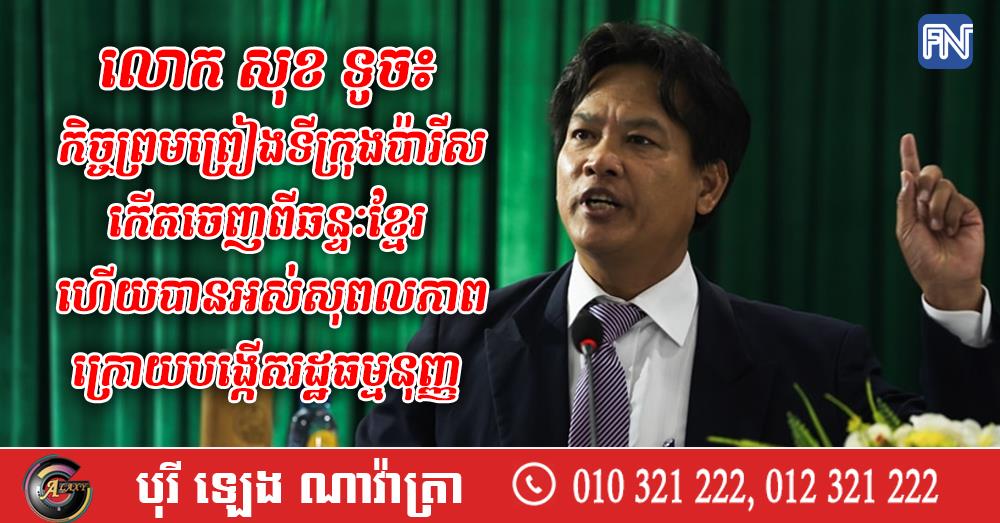Phnom Penh (FN), Oct. 22 – President of Royal Academy of Cambodia (RAC) Sok Touch highly commended the Paris Peace Accord, an agreement aimed at ending war and restoring peace in Cambodia.
He said that the agreement was born from the will of the Khmer people, especially the late king father Norodom Sihanouk, who back then represented the tripartite resistance movement and Cambodian prime minister Hun Sen, who represented the government of the State of Cambodia.
After the coup d'état to overthrow the late king Norodom Sihanouk as the head of the Sangkum Reas Niyum on 18 March 1970, Cambodia suffered from the worst tragedy of the war for almost three decades. Until the end of 1987, late king father Sihanouk and premier Hun Sen held first dialogue in France to find a solution to these conflicts. That first meeting paved the way for a series of talks between Cambodian political parties until Cambodia reached the signing of an agreement on a common political solution on 23 October 1991 in France.
This agreement also includes the signatures of 17 other countries, including the United States, Britain, France, the Soviet Union, China, Indonesia, Vietnam, Laos, Thailand, Singapore, Malaysia, Philippines, Brunei, Yugoslavia, India, Japan, Canada and Australia.
Sok Touch underlined that the Paris Peace Accord was a transitional agreement that expired after Cambodia established its own constitution and government after the 1993 elections.
Article 1 of the Agreement stated that for the purposes of this Agreement, the transitional period shall commence with the entry into force of this Agreement and terminate when the constituent assembly elected through free and fair elections, organized and certified by the United Nations, has approved the constitution and transformed itself into a legislative assembly, and thereafter a new government has been created, Sok Touch said.
He also added that the Cambodia-Thai Preah Vihear temple dispute and Cambodia-Lao border dispute are all evidences that the Paris Peace Accord is no longer valid.
The Royal Academy of Cambodia, on Friday, organized a roundtable discussion on the Paris Peace Accord aiming to raise awareness and points for consideration. The forum also invited speakers from civil society organizations, social analysts, political party representatives and researchers.
All speakers raised the aspects that led to the agreement, the achievements arising from the agreement, the validity, the challenges and the recommendations for further implementation. They expressed similar views, applauding the agreement, which led to Cambodia ending the war and moving towards nation-building.
=FRESH NEWS










